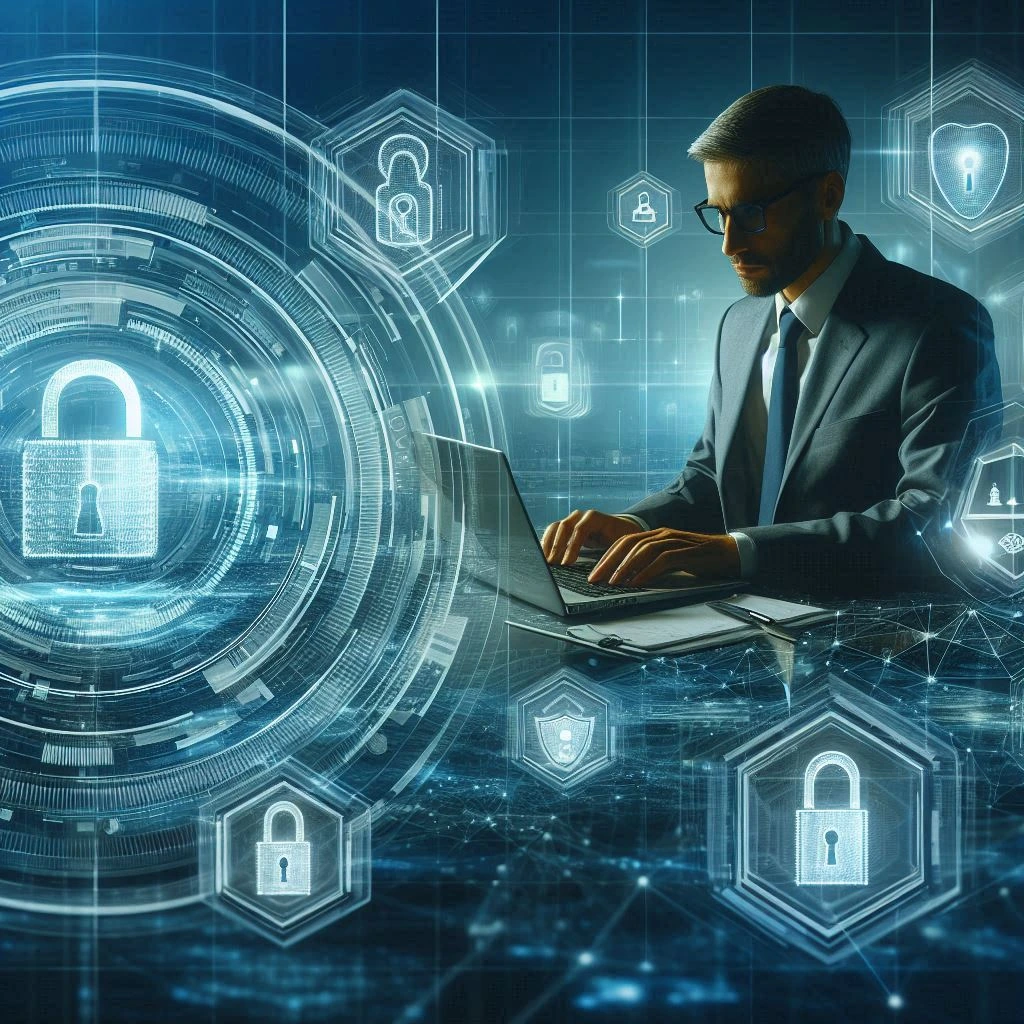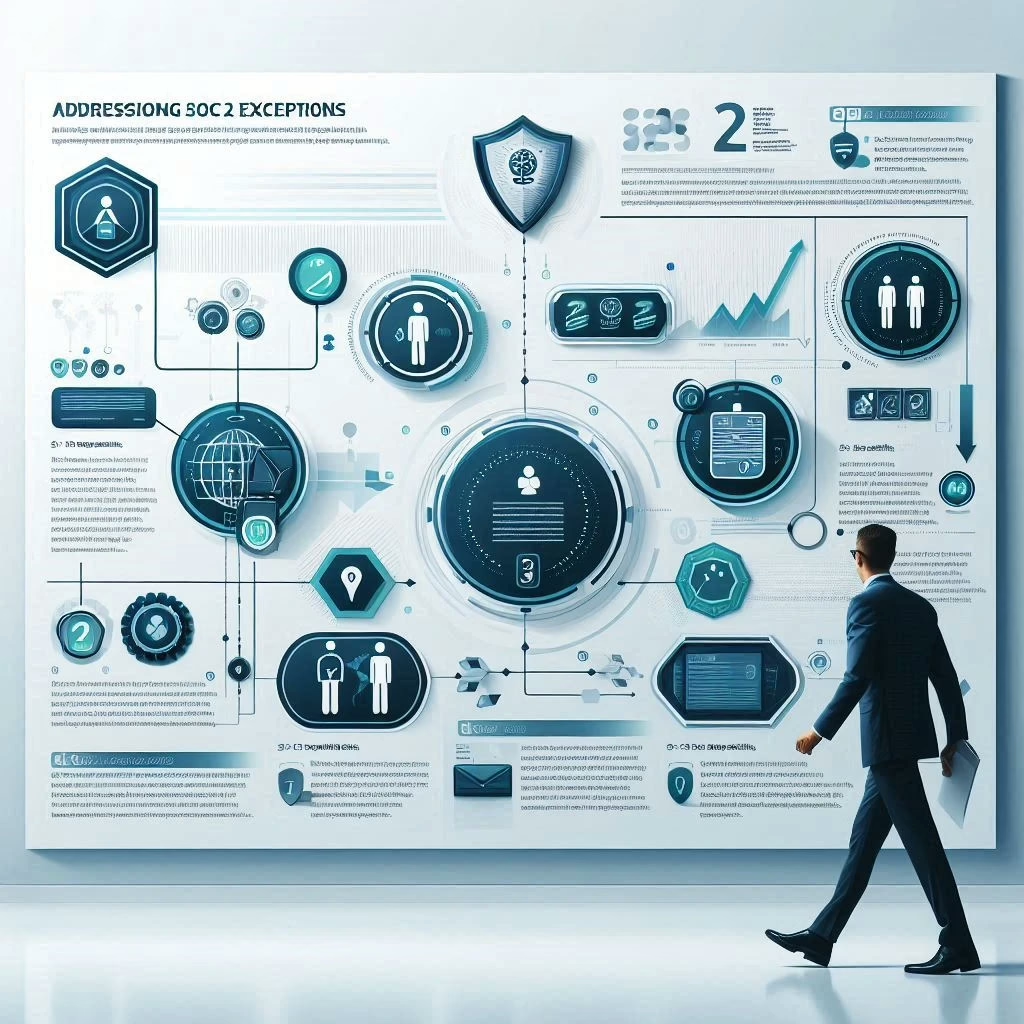Introduction to Remote Audits
In recent years, the landscape of auditing has undergone a significant transformation, particularly with the rise of remote auditing. Remote auditing refers to the process of conducting audits without the need for physical presence at the audit site. This method has gained traction due to various factors, including the global pandemic, which necessitated a shift towards telecommuting and remote operations. As organizations adapt to this new normal, understanding the implications of remote audits becomes essential for IT auditors and cybersecurity professionals.
Growing Importance of Remote Auditing
The COVID-19 pandemic accelerated the adoption of remote work, prompting organizations to rethink traditional auditing practices. Remote audits allow auditors to evaluate an organization’s processes and controls from a distance, utilizing technology to gather evidence and communicate findings. This shift not only ensures continuity in audit functions but also aligns with the evolving work environment where flexibility and remote capabilities are paramount.
Benefits of Remote Audits
Remote audits offer several advantages that make them an appealing option for organizations:
- Cost Savings: By eliminating travel expenses and reducing the time spent on-site, remote audits can significantly lower the overall cost of the audit process.
- Flexibility: Auditors can schedule sessions at times that are convenient for both the audit team and the organization, accommodating different time zones and work schedules.
- Access to a Wider Talent Pool: Remote auditing enables organizations to engage auditors from various geographical locations, allowing them to tap into specialized skills and expertise that may not be available locally.
Cybersecurity Considerations
While the benefits of remote audits are clear, they also introduce unique cybersecurity risks that must be addressed. The reliance on digital communication and data sharing increases the potential for cyber threats, such as data breaches and unauthorized access to sensitive information. Therefore, cybersecurity must be a critical consideration in the remote audit process. Auditors need to implement robust security measures to protect data integrity and confidentiality, ensuring that the audit process does not inadvertently expose the organization to additional risks.
As remote audits become increasingly relevant in today’s environment, it is crucial for IT auditors and cybersecurity professionals to understand both the advantages and the inherent risks associated with this approach. By prioritizing cybersecurity, organizations can effectively navigate the complexities of remote auditing while safeguarding their information systems.
Understanding Cybersecurity Risks in Remote Audits
As organizations increasingly adopt remote auditing practices, particularly in the wake of the COVID-19 pandemic, it is crucial for IT auditors and cybersecurity professionals to recognize the specific cybersecurity risks that accompany this shift. Remote audits, while offering efficiency and cost-effectiveness, also introduce a range of vulnerabilities that can compromise the integrity of the audit process and the confidentiality of sensitive data.
Common Cybersecurity Threats
- Phishing Attacks: One of the most prevalent threats in remote auditing is phishing, where attackers attempt to deceive individuals into providing sensitive information or access credentials. Phishing can occur through emails, messages, or even during virtual meetings, making it essential for auditors to remain vigilant and educated about recognizing suspicious communications.
- Malware: The risk of malware infections increases in remote environments, especially when auditors access organizational systems from personal devices or unsecured networks. Malware can lead to unauthorized access to sensitive data, data corruption, or even complete system takeovers, posing significant risks to the audit process.
- Data Breaches: Remote audits often involve the transfer of sensitive information over the internet, which can be intercepted if proper security measures are not in place. Data breaches can result in the exposure of confidential audit findings, damaging the organization’s reputation and potentially leading to legal ramifications.
Vulnerabilities in Remote Work Setups
- Unsecured Networks: Many auditors work from home or other remote locations where internet connections may not be secure. Public Wi-Fi networks, in particular, are susceptible to eavesdropping and man-in-the-middle attacks, which can compromise the integrity of the data being transmitted during audits [14].
- Personal Devices: The use of personal devices for work-related tasks can introduce additional vulnerabilities. These devices may lack the necessary security controls, such as updated antivirus software or firewalls, making them easier targets for cybercriminals. Furthermore, personal devices may be shared with family members, increasing the risk of accidental data exposure [12].
Impact on Audit Integrity and Data Confidentiality
The cybersecurity risks associated with remote audits can have profound implications for both audit integrity and data confidentiality:
- Audit Integrity: If auditors fall victim to cyber threats, the reliability of their findings can be called into question. Compromised data or unauthorized access to audit systems can lead to inaccurate conclusions, undermining the entire audit process [5].
- Data Confidentiality: The exposure of sensitive information during remote audits can lead to significant breaches of confidentiality. This not only affects the organization being audited but can also have wider implications for stakeholders and clients, potentially resulting in loss of trust and financial penalties [13].
While remote auditing offers numerous advantages, it is imperative for IT auditors and cybersecurity professionals to be acutely aware of the associated cybersecurity risks. By understanding these threats and vulnerabilities, organizations can implement robust security measures to safeguard the integrity of their audits and protect sensitive data.
Best Practices for Cybersecurity in Remote Auditing
As organizations increasingly adopt remote auditing practices, particularly in the wake of the COVID-19 pandemic, it is crucial for IT auditors and cybersecurity professionals to recognize and address the cybersecurity risks that accompany this shift. Here are some actionable strategies to mitigate these risks during remote audits:
- Implement Robust Authentication Methods: To safeguard access to audit systems and sensitive information, it is essential to utilize strong authentication measures. Multi-factor authentication (MFA) is a highly effective method that adds an additional layer of security by requiring users to provide two or more verification factors to gain access. This significantly reduces the risk of unauthorized access to audit data and systems, ensuring that only authorized personnel can participate in the audit process [10].
- Ensure Secure Communication Channels: The integrity of communication between auditors and clients is paramount. Utilizing secure communication channels, such as Virtual Private Networks (VPNs) and encrypted email services, can help protect sensitive information from interception during transmission. These tools ensure that data exchanged during the audit remains confidential and secure from potential cyber threats [12].
- Use Secure Document Sharing and Storage Solutions: Protecting sensitive data is critical in remote audits. Organizations should adopt secure document sharing and storage solutions that offer encryption and access controls. This ensures that only authorized individuals can view or edit sensitive documents, thereby minimizing the risk of data breaches. Solutions that comply with regulatory standards can further enhance the security of the audit process [13].
By implementing these best practices, IT auditors and cybersecurity professionals can significantly reduce the cybersecurity risks associated with remote audits, ensuring a secure and effective auditing process.
Compliance and Regulatory Considerations
In the realm of internal auditing, particularly in the context of remote audits, adherence to compliance regulations is paramount. As organizations increasingly adopt remote auditing practices, understanding the cybersecurity risks and regulatory frameworks that govern these processes becomes essential for IT auditors and cybersecurity professionals.
Relevant Regulations Impacting Remote Auditing Practices
Several key regulations significantly influence remote auditing practices, including:
- General Data Protection Regulation (GDPR): This regulation mandates strict guidelines for data protection and privacy within the European Union. Remote audits must ensure that personal data is handled in compliance with GDPR, which includes obtaining explicit consent for data processing and implementing adequate security measures to protect sensitive information [2].
- Health Insurance Portability and Accountability Act (HIPAA): For organizations in the healthcare sector, HIPAA sets forth requirements for safeguarding patient information. Remote audits must ensure that any electronic protected health information (ePHI) is secured and that audit processes comply with HIPAA’s privacy and security rules [11].
- Sarbanes-Oxley Act (SOX): This U.S. regulation requires public companies to maintain accurate financial records and implement internal controls. Remote audits must assess compliance with SOX, particularly in how financial data is accessed and managed remotely.
Consequences of Non-Compliance
Failing to adhere to these regulations can have serious repercussions:
- Legal Repercussions: Non-compliance can lead to significant fines and legal actions against organizations. For instance, GDPR violations can result in fines up to 4% of annual global turnover or €20 million, whichever is higher. Similarly, HIPAA violations can incur penalties ranging from $100 to $50,000 per violation, depending on the severity [2].
- Loss of Trust: Beyond financial penalties, non-compliance can severely damage an organization’s reputation. Stakeholders, clients, and customers may lose trust in an organization that fails to protect sensitive information, leading to potential loss of business and long-term damage to brand integrity [11].
Staying Updated on Compliance Changes
To effectively navigate the complexities of compliance in remote audits, organizations should consider the following strategies:
- Regular Training and Education: IT auditors and cybersecurity professionals should engage in continuous education regarding compliance regulations. This can include attending workshops, webinars, and industry conferences focused on the latest regulatory changes and best practices [2].
- Utilizing Compliance Management Tools: Implementing compliance management software can help organizations track regulatory changes and ensure that their remote audit processes are aligned with current requirements. These tools can provide alerts and updates on relevant regulations, making it easier to adapt audit practices accordingly [11].
- Establishing a Compliance Review Process: Organizations should develop a systematic approach to review and update their compliance policies regularly. This includes conducting periodic assessments of remote audit practices to ensure they meet regulatory standards and adjusting procedures as necessary.
As remote auditing becomes more prevalent, understanding and adhering to compliance regulations is crucial for mitigating cybersecurity risks. By staying informed and proactive, IT auditors and cybersecurity professionals can help ensure that their organizations maintain compliance and protect sensitive information during remote audits.
Technology Tools for Secure Remote Auditing
In the evolving landscape of internal auditing, remote audits have become increasingly prevalent, especially in light of recent global events. However, this shift brings with it a unique set of cybersecurity risks that must be addressed to ensure the integrity and security of the audit process. Here, we explore various technology solutions that can enhance security during remote audits.
- Specialized Tools for Remote Audits: Utilizing dedicated audit management software is crucial for maintaining oversight and control during remote audits. These platforms often include features such as secure document sharing, task management, and real-time collaboration tools that help streamline the audit process while safeguarding sensitive information. Additionally, data analytics platforms can be employed to analyze large datasets efficiently, allowing auditors to identify anomalies and potential risks without compromising data security. These tools not only enhance the efficiency of the audit but also provide a structured approach to managing cybersecurity risks associated with remote operations [1][4].
- Importance of Software and System Updates: Keeping software and systems updated is a fundamental practice in cybersecurity. Regular updates help patch vulnerabilities that could be exploited by cybercriminals. For IT auditors and cybersecurity professionals, it is essential to ensure that all tools used during remote audits are running the latest versions. This includes not only the audit management software but also operating systems, firewalls, and antivirus programs. By maintaining up-to-date systems, organizations can significantly reduce their exposure to cyber threats during remote audits [3][10].
- Role of Cloud Services: Cloud services play a pivotal role in facilitating secure remote audits. They offer scalable solutions that can be accessed from anywhere, enabling auditors to work collaboratively without the need for physical presence. However, it is vital to choose cloud providers that prioritize security, offering features such as data encryption, multi-factor authentication, and robust access controls. These measures help protect sensitive audit data from unauthorized access and ensure compliance with regulatory requirements. Furthermore, cloud services can enhance the efficiency of remote audits by providing centralized access to necessary documents and tools, thereby streamlining the audit process while maintaining a high level of security [11][12].
While remote audits present certain cybersecurity challenges, leveraging specialized tools, maintaining updated systems, and utilizing secure cloud services can significantly mitigate these risks. By adopting these technology solutions, IT auditors and cybersecurity professionals can enhance the security of their remote auditing processes, ensuring that they remain effective and resilient in the face of evolving cyber threats.
Training and Awareness for Audit Teams
In the context of remote audits, cybersecurity risks are a significant concern that must be addressed through comprehensive training and awareness programs for audit teams. As organizations increasingly adopt remote auditing practices, it is essential to equip auditors with the knowledge and skills necessary to navigate the unique challenges posed by this environment. Here are key points to consider:
- Training Programs Focused on Cybersecurity Threats: Audit teams should participate in training programs that specifically address the identification and recognition of cybersecurity threats. These programs should cover various topics, including phishing attacks, social engineering tactics, and the importance of secure communication channels. By understanding these threats, auditors can better protect sensitive information during remote audits [5].
- Regular Updates and Refresher Courses: The cybersecurity landscape is constantly evolving, with new threats emerging regularly. To ensure that audit teams remain vigilant and informed, organizations should implement regular updates and refresher courses. These sessions can help reinforce best practices and introduce new strategies for mitigating risks associated with remote auditing.
- Fostering a Culture of Cybersecurity Awareness: It is crucial to cultivate a culture of cybersecurity awareness within audit teams. This can be achieved by encouraging open discussions about cybersecurity challenges and promoting a proactive approach to risk management. When team members feel empowered to share their concerns and insights, it enhances the overall security posture of the organization [7].
By prioritizing training and awareness, organizations can significantly reduce the cybersecurity risks associated with remote audits, ensuring that audit teams are well-prepared to handle the complexities of this modern auditing approach.
Conclusion and Call to Action
In the evolving landscape of internal auditing, the integration of cybersecurity considerations into remote audits has become paramount. As organizations increasingly adopt remote auditing methods, particularly accelerated by the COVID-19 pandemic, it is essential to recognize the unique cybersecurity risks that accompany this shift. Remote audits can expose vulnerabilities in information systems, making it crucial for IT auditors and cybersecurity professionals to remain vigilant and proactive.
Key Points Recap:
- Importance of Cybersecurity in Remote Audits: The shift to remote auditing has highlighted the need for robust cybersecurity measures. Internal auditors must ensure that their auditing processes are not only efficient but also secure, safeguarding sensitive data from potential breaches [2][11].
- Assessment of Current Practices: Organizations should regularly evaluate their remote auditing practices to identify vulnerabilities and areas for improvement. This includes assessing the effectiveness of existing security controls and ensuring that all team members are trained in cybersecurity best practices [5][8].
- Resources for Further Learning: To enhance your understanding and implementation of cybersecurity in remote audits, consider exploring resources such as industry guidelines, webinars, and training programs focused on cybersecurity auditing techniques. Engaging with professional networks can also provide valuable insights and support [6][12].
Call to Action: We encourage all IT auditors and cybersecurity professionals to take proactive measures in fortifying their remote auditing practices. By prioritizing cybersecurity, you can help ensure the integrity of your audits and protect your organization from potential threats. Start by conducting a thorough assessment of your current practices, and commit to adopting best practices that will enhance your cybersecurity posture in remote auditing environments. Together, we can create a more secure auditing landscape.
Find out more about Shaun Stoltz https://www.shaunstoltz.com/about/
This post was written by an AI and reviewed/edited by a human.



